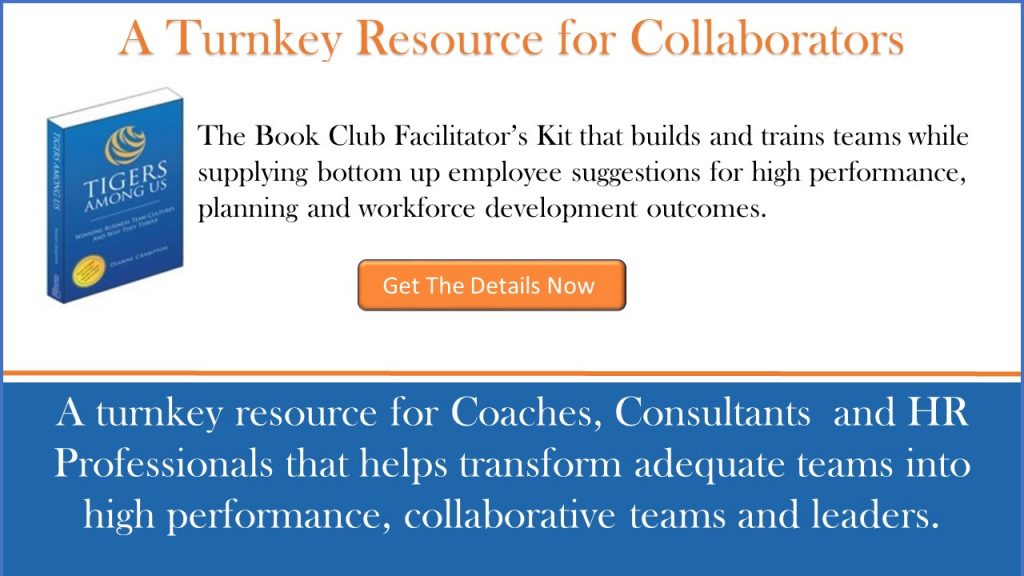Organizations that have managed to survive economic slumps know that the secret to staying afloat lies with their people. Neither size, rights to groundbreaking technology, nor access to funding are predictors of success. An organization’s most valuable asset is its people, and it is collaborative team leaders who make the human asset shine.
What does this mean for team leaders or HR practitioners?
Well, it means that your job just got more challenging. You’re expected to possess a solid foundation in the traditional areas of HR, of course. But now more than ever, you’re also expected to master new skill sets. This means that in addition to hiring, training, compensation, and employment, you will also have to be an expert in organizational culture, engagement, internal communications, collaborative team leadership, and even business strategy. The pandemic and the change in work environment have only made this more visible.
To truly thrive here are five collaborative team leadership habits you must cultivate.
The five collaborative team leadership habits you must cultivate are:
Habit #1: TAKE THE LEAD
HR Managers are excellent followers. But sadly, the I just do what top management tells me to” attitude won’t cut it. This mindset has been nurtured by the idea that job security can be attained by obedience to upper management. But when it comes to matters such as layoffs, team culture, and engagement, HR people tend to simply conform rather than offer their views.
The problem with this approach is that it downplays an experienced HR’s perspective. For instance, the CEO and legal team often dictate the strategy for layoffs. But all too often, it’s the HR department that has the most germane assessment.
Another example is hiring. HR practitioners know that a systematic interview sifts out the most salient information about candidates. But too often, the interview portion is left solely to the line managers. Many of them are qualified for their jobs but lack the training, so they end up not asking the right questions.
Simply put, HR Managers are experts when it comes to human resources. So when it comes to people-focused initiatives, they should be in charge.
Habit #2: KNOW HOW TO HANDLE SENSITIVE INFORMATION
Handling sensitive information means knowing how to strike a balance between discretion and transparency. But a lot of emphases has been placed on discretion. Some HR pros shun open, honest communication, which is the TIGERS principle Genuineness. The ability to be respectfully sincere, frank and forthright is a skill everyone on a team must have. And to be candid, HR departments are infamous for being black holes of information.
But why be comfortable with transparency?
In this day and age (and in light of the increased networks brought about by the pandemic), transparency is fast becoming the norm. Millennials now compose the biggest population segment. Companies are now expected to be candid and straightforward. When employees experience a disconnect between what is communicated and what they experience, their reactions can be devastating. For the organization the TIGERS first principles TRUST is impacted, which makes everything more difficult to achieve. For he Millennial who can not trust their organization, quitting to work somewhere else is the most viable option.
Externally, the same holds true. Potential candidates have access to so much information (reviews and hard facts). Personal and professional social networks make internal culture about a company public information. So the only choice left is to be upfront during recruitment. It’s either that or losing top talent to another employer simply because you appear to lack credibility and the ability to be genuine.
Discretion is critical, of course. But genuine communication is even more essential to maintain trustworthiness, attract skilled candidates, and retain talent.
Habit #3: KNOW YOUR MOST IMPORTANT ASSET
Your people.
The term “human capital” has been thrown around for years. But few understand what it means. Human capital and human resources are two very different concepts.
Human resources suggests that talent is a fixed commodity. Human capital, on the other hand, suggests that talent is something that can be grown, groomed and invested in.
HR practitioners should realize the magnitude of training and development. It isn’t just a matter that stops with onboarding. It’s a lifelong process that builds your organizational excellence from the inside out.
Habit #4: PAY ATTENTION TO CULTURE AND ENGAGEMENT
Workplace culture isn’t a priority for many organizations simply because on the surface, it doesn’t seem to do much in terms of productivity. For as long as employees clock in, meet their quotas, and follow the rules, nothing cracks, right?
At TIGERS Success Series we know that internal culture impacts everything. It dictates behavior, mindsets, habits, and problem-solving approaches. In effect, it influences customer service, brand image, and even service or product development. A culture doesn’t just happen. It’s cultivated. It takes training, strategy, and proper execution along with identifying group behavior norms that keep the culture collaborative, productive and friendly.
If you find that your company doesn’t have a distinct culture, or worse, you suspect that it’s the wrong culture to have, begin with your company’s values. Check out your mission and vision. Haven’t got one? Establish it. Choose the mission, values, and vision that you think will help your company move forward with its objectives and goals.Then develop your group behavior norms so that what you want to see in your values statement is what you actually get. It is one thing to have your corporate values posted on the board room wall. It is another to see it realized daily in how your employees treat your customers, one another and your organization.
Once your values are clear (and in black and white), creating a culture that supports your goals becomes easier. This will impact not just your internal protocols and perks, but your workspace environment, as well. If you need help with this process, click HERE.
Habit #5: BE THE PERPETUAL STUDENT
Never stop learning! Until we ride the Covid-19 wave through, I tend to believe that the race is to the swift. Survival depends on how quickly an organization adapts to the new challenges. Business models that worked pre-pandemic may no longer apply. The implication is that everyone needs to be constantly honing skills and experience. For instance, digital media is not a necessity. Is your team equipped to fully render customer care online?
As an HR practitioner, you’re the default people expert in your organization. But to truly thrive and have your team flourish, you need a holistic approach, as well as knowledge specific to your organization and industry.
Care to dig deeper into the topic of collaborative team leaders?
The following resources take this discussion further.
- Complimentary Webinar: 6 Principles That Build High Performance Teams
- TIGERS Among Us Book Club Kit
- Lessons in Leadership from the Animal Kingdom
- Leadership Teambuilding for a Collaborative Work Culture
- 7 Habits of Highly Effective HR Professionals
Copyright TIGERS Success Series, Inc. by Dianne Crampton
About TIGERS Success Series
TIGERS provides a comprehensive, multi-pronged and robust system for improving your workforce behavior, work culture, profitability and project management and team leadership success.
We specialize in building cooperation among employees and collaboration between departments for profitable, agile, and high performance team outcomes. Scaled to grow as your organization and leadership performance improves, our proprietary TIGERS Workforce Behavior Profile, Micro-Training technology and group facilitation methods result in your high performance team outcomes and change management success. We also license and certify elite internal and external consultants and project managers to use our resources for similar outcomes.
Here is a complimentary 30 minute webinar on the TIGERS 6 Principles. Course Certificate for Completion.


